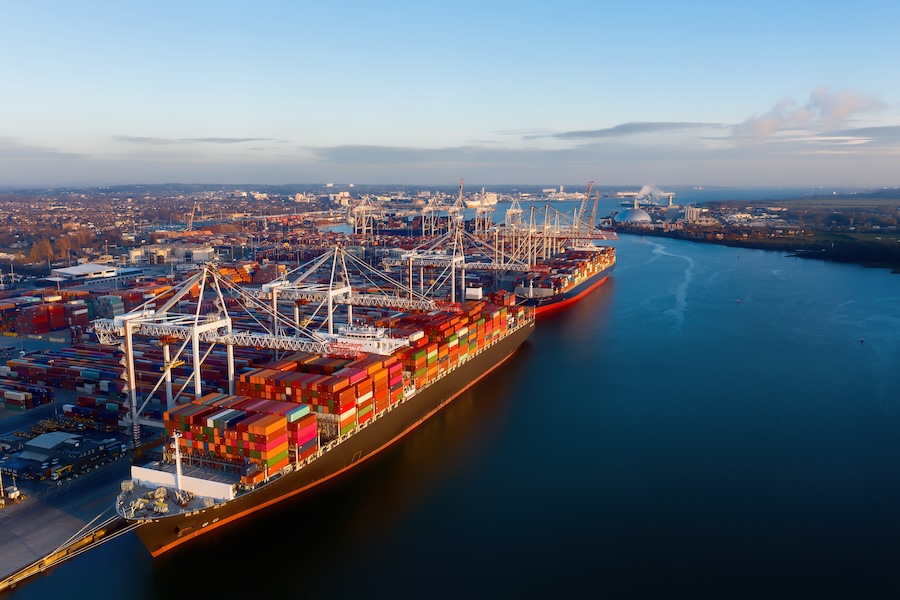UK imposes new carbon tax on imports: What you need to know
The United Kingdom announced plans to impose a carbon tax on certain goods exported into the country. Read More

Aerial view of cargo ships at the port of Southampton
On Dec. 18 the U.K. announced a new carbon levy — the Carbon Border Adjustment Mechanism (CBAM) — on imported goods, applying specifically to carbon-intensive products in the iron, steel, aluminum, fertilizer, hydrogen, glass, ceramics and cement industries. Set to begin in 2027, the policy follows on the heels of the European Union’s carbon tax, which goes into effect in 2026.
CBAM, designed to prop up production of raw materials within the United Kingdom, “will apply an effective carbon price to imports” that will be lower than the price on the U.K.’s Emissions Trading System, a decarbonization scheme that forces companies in emission-heavy sectors to purchase CO2 permits.
The CBAM will make future U.S. exports more costly in the U.K., but American producers should be ready, said Xan Fishman, director of energy policy and carbon management at the Bipartisan Policy Center, thanks to tax credits provided by the Inflation Reduction Act .
“The more time passes [to the implementation of the CBAM], the more time these IRA credits will have been utilized by all of these companies to decarbonize what they do,” Fishman said. “That increases [the U.S’s] competitive advantage exporting into that sort of system.”
The United States exported a total of $468 million worth of iron and steel products to the U.K. in 2022.
The law’s final form is listed as “subject to consultation in 2024” on the U.K. government’s website. Here are some important details for sustainability professionals:
The tax associated with the product is determined by its country of origin. The U.K. will assign a carbon price to the product as if it were produced domestically. The tax will be the difference, if any, between the carbon price assigned to the good in its country of origin and the U.K. price.
Any purchased carbon credits will not factor into the assigned carbon price of the product. Carbon credits will also not be eligible to reduce the tax once assigned and charged.
Generally, only Scope 1 and 2 emissions will be eligible for CBAM. “The UK CBAM will be applied to Scope 1, Scope 2 and select precursor product emissions embodied in imported products.”
A cap-and-trade system will ensure that the tax decreases over time to incentivize production decarbonization.
The law applies to carbon generated across the supply chain and production process.This means that not only are the raw materials within the industries listed liable for the tax, but also component parts and finished goods.
GreenBiz will continue to track and report on the UK CBAM as it develops in 2024.












